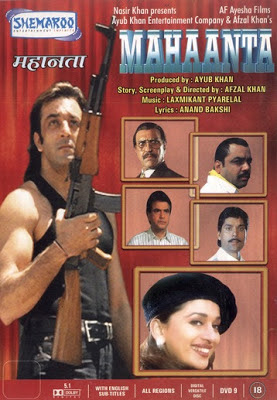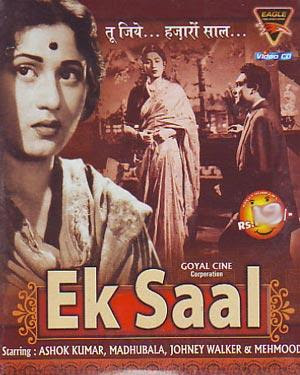Directed by: Muzaffar Ali
Starring: Rekha,
Naseeruddin Shah, Farooq Sheikh, Raj Babbar
Released: 1981
Verdict: destroy every
copy – horrible – bad – whatever – flawed but enjoyable -
good – great – amazing
One of the most famous
stories of both Indian literature and cinematography, Umrao Jaan
could be easily described as a tale of a woman who got as much as bad
luck as possible. Thrown into the middle of undesirable
circumstances, Umrao Jaan accepts her fate, tries to make the best of
it, dares to hope and being heart broken tries to cope with her fate
yet again, every single time a little less hopeful, until a nearly
indifferent attitude becomes her main character feature. From unknown
enemies to her own family, they all have a share in her misery. The
woe story has been adapted on the big screen several times, yet the
1981 version starring the legendary Rekha in her, possibly, most
memorable role ever, is without a doubt the one lauded by many as the
ultimate and best presented one.
+-+DVDrip+-+XviD+-+Esubs+%5BTeam+Bindass%5D.avi_001892597.jpg)
The story begins in 1840.
A little girl Amiran is kidnapped as a revenge to her father, who had
previously testified in court against a rapist (who naturally feels
offended). At first the kidnappers plan to kill the girl, but
ultimately their greed and hunger for money produce a better idea –
they would sell the girl into a brothel. That way they will get paid,
and the girl will be as good as dead to the rest of the world anyway.
Little Amiran tries to run away from the brothel, but is caught, and
has to bow to her fate for the first time. She gets a new name –
Umrao, is treated well by everyone in her new „home“, and she is
given a proper education for a future courtesan. She is taught to
sing, to play musical instruments, and her greatest passion becomes
writing poetry. Years keep flying by and in no time a slightly
awkward girl blooms into Rekha (aka into a creature with sweet,
intoxicating voice, eyes burning with an inner flame and in
possession of unique, mysterious beauty).
+-+DVDrip+-+XviD+-+Esubs+%5BTeam+Bindass%5D.avi_001789160.jpg)
It is her poetry though,
that brings the love of her life to her. Young and dashing Nawab
Sultan is a lover of shayari, and it doesn´t really take much time,
until he is head over heels in love with the prostitute as well. The
fairy-tale romance, however, is cut short, when under pressure of
circumstances (and his mother), Nawab Sultan is forced to stop
visiting thr brothel and Umrao refuses to step into a house of his
friend, where she is treated like dirt. And not even several outdoor
meetings save anything. Nawab Sultan bows down to his mother´s
wishes and gets married, leaving devastated Umrao forever. There is
more bad luck in store for Umrao, as she tries to create a new way of
life for herself, taking some rather dangerous steps, but being
always struck down by one blow of fate after another. For no fault of
hers, she is ultimately only left with herself and her verses. All
the more sad since other two female characters, also destined to be
courtesans from the star, both not only find a way out of their
personal hell, but also a happiness and love.
+-+DVDrip+-+XviD+-+Esubs+%5BTeam+Bindass%5D.avi_004839455.jpg)
The beginning of the film
is not edited too well. Glimpses and hints of how the things go, and
why the characters decide what they do, seem almost unrelated, and
their motivations and reactions are so only a matter of assumptions
on the part of the viewer. The story itself moves slowly, and could
easily become tiresome (as was the case of the 2006 version of the
film), but what keeps ones attention is Rekha, whose sensitive
understanding of the character truly made Umrao Jaan a living person.
Rekha is also one of those actresses, who don´t need to speak much,
yet even their smallest change of mood can be visible in their eyes
and on their face. And when she does speak, one wants to listen to
her forever. She is almost equaled in the perfection of the
performance by Naseeruddin Shah, playing a good-for-nothing Gohar
Mirza, a helper in the brothel, who has a soft stop for the
courtesan.
+-+DVDrip+-+XviD+-+Esubs+%5BTeam+Bindass%5D.avi_002285614.jpg)
+-+DVDrip+-+XviD+-+Esubs+%5BTeam+Bindass%5D.avi_007707527.jpg)
The settings, the
costumes, everything seems extremely realistic, and as far as I know
the makers managed to give the film an accurate historic feel to it
as well. Nothing is blown out of proportions, yet the high class and
richness of the culture of 19th century courtesans is very
apparent. The film, of course, is also famous for beautiful songs,
likeable melodies and lyrics. Finally I have to say, that although
not perfect, the film is a beautiful piece of cinema for many
reasons, some of which I have mentioned and some of which I would be
putting into words only with difficulties.













+DvDRip+CharmeLeon+SilverRG.mkv_000816959.jpg)
+DvDRip+CharmeLeon+SilverRG.mkv_000830119.jpg)
+DvDRip+CharmeLeon+SilverRG.mkv_001116959.jpg)
+DvDRip+CharmeLeon+SilverRG.mkv_002185239.jpg)
+DvDRip+CharmeLeon+SilverRG.mkv_002714999.jpg)
+DvDRip+CharmeLeon+SilverRG.mkv_007383159.jpg)

+-+DVDrip+-+XviD+-+Esubs+%5BTeam+Bindass%5D.avi_001892597.jpg)
+-+DVDrip+-+XviD+-+Esubs+%5BTeam+Bindass%5D.avi_001789160.jpg)
+-+DVDrip+-+XviD+-+Esubs+%5BTeam+Bindass%5D.avi_004839455.jpg)
+-+DVDrip+-+XviD+-+Esubs+%5BTeam+Bindass%5D.avi_002285614.jpg)
+-+DVDrip+-+XviD+-+Esubs+%5BTeam+Bindass%5D.avi_007707527.jpg)
+-+DVDrip+-+XviD+-+Esubs+%5BTeam+Bindass%5D.avi_005907188.jpg)




